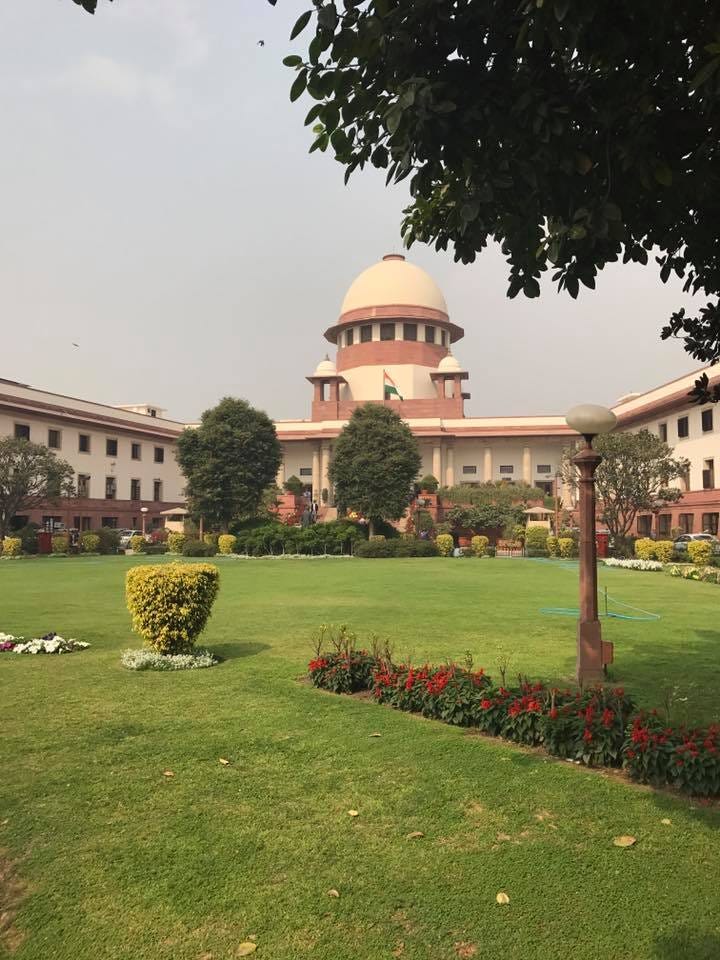Supreme Court Nudges Government to Frame Guidelines on Seizure of Digital Devices during Investigation
The Guidelines, expected by December 14, 2023, are likely to define, if not circumscribe, the powers of investigating agencies and prescribe procedure.
Introduction to the Case
In a significant development, the Centre has informed the Supreme Court of India that the report of the Committee, set up to formulate guidelines for the search and seizure of electronic devices during investigation, shall be ready by December 14, 2023. This disclosure comes in response to the Supreme Court's recent directives, accentuating the need for comprehensive guidelines to govern the seizure of digital devices, including mobile phones, particularly those belonging to the media professionals. The Supreme Court was hearing on Wednesday a petition filed by the Foundation for Media Professionals against the Union of India (Writ Petition (Criminal) No. 395 of 2022).
Fundamental Rights Constitutional Issues Involved
This issue intersects with various fundamental rights, such as the freedom of speech, right to privacy, and the right against self-incrimination under Article 20(3) of the Indian Constitution. Article 20(3) states that no person accused of an offence shall be compelled to be a witness against themselves. Additionally, the proposed guidelines must address practical procedural aspects to ensure both the integrity and confidentiality of data during such seizures.
Progress Report and Judicial Oversight
On Wednesday, Additional Solicitor General (ASG) S V Raju, representing the Centre, informed the Bench comprising Justice Sanjay Kishan Kaul and Justice Sudhanshu Dhulia that barely a week was needed to finalize these guidelines. The Court has adjourned the matter to December 14, 2023, which notably could be Justice Kaul's last working day on the Bench before his retirement on December 25, 2023.
Critical Questions for Consideration
The core questions that these guidelines need to address include:
Whether a search operation can be conducted without a warrant, and whether digital devices can be seized during an investigation without a warrant.
In light of the right to privacy being a fundamental right under the Constitution of India, what constitutes the "procedure established by law" to impose reasonable restrictions on this right.
Whether individuals can be compelled to disclose their passwords, considering this could infringe on their right to privacy and right against self-incrimination under Article 20(3).
How to ensure that only relevant data is extracted and kept confidential, without accessing other private data.
How to handle cases where premises of advocates are searched, involving client-attorney privilege.
How to enable individuals subjected to searches to obtain authenticated copies of the data for their use and to ensure the original data taken by the agency is not altered or tampered with.
Whether these guidelines will apply only to police and other investigative agencies or also to departments like the Income Tax, which conducts its own search and seizure operations, under the provisions of the Income Tax Act, 1961.
Impact on the admissibility of the evidence that is gathered in substantial breach of the guidelines.
Anticipated Challenges and Expectations
A predominant view is that the guidelines finalized by the Government of India may not fully meet the expectations of the legal fraternity or media professionals, and litigation on this matter is likely to continue. These complex questions are globally subject to local laws and the Constitution. However, general principles can be derived from international practices in countries like the United States, the UK, and the European Union, which have balanced individual rights and freedoms with the rights and obligations of investigative agencies in due process of law, including in cases of national security and public order.
Supreme Court’s Insistence was Evident
The Supreme Court has expressed urgency in this matter, noting the previous delays and urging the Centre to adhere to the time-frame undertaken. The PIL filed by the Foundation for Media Professionals has been pending since 2022, and the Apex Court had issued a notice to the Centre in March 2021 in a similar plea. Senior advocate Nitya Ramakrishnan highlighted the pressing need for guidelines, citing the recent NewsClick case, in which around 300 devices had been seized from 90 journalists.
The Supreme Court, while granting one more week for the Centre to finalize its guidelines, adjourned the matter for December 14.
Summing Up: Awaiting the Guidelines
It remains to be seen what type of guidelines are submitted before the Supreme Court on December 14. This case exemplifies how the law has struggled to keep pace with rapidly evolving technology. There is a hope that the forthcoming guidelines will equitably address the fundamental rights of common citizens, including journalists, while ensuring that investigative agencies retain the necessary authority to conduct effective investigations. These guidelines must avoid granting unguided discretion and arbitrary power to these agencies, ensuring accountability in their operations.
This is a case that shall be interesting to follow and we, in “The KBS Chronicle” promise to do so.
Supreme Court Update of 14th December, 2023
In the latest hearing before the Supreme Court on the matter of framing guidelines for the search and seizure of electronic devices, a significant development unfolded today. Despite expectations, the Additional Solicitor General (ASG), representing the Government of India, did not submit comprehensive guidelines. The Bench, comprising Justices Sanjay Kishan Kaul and Sudhanshu Dhulia, presided over the hearing.
Senior Advocate Nithya Ramakrishnan expressed concerns over the lack of substantial progress from the State's end, noting that while guidelines had been circulated by the petitioners, the response from the Central Government was limited to a one-page document, falling short of the detailed guidelines anticipated.
The Supreme Court, in its order, acknowledged the ASG's submission that discussions had taken place considering the existing CBI manual, Karnataka cybercrime investigating manual, and suggestions from the petitioners. The ASG assured the Court that a more concrete set of guidelines would be presented within six weeks. Until then, the CBI manual, which primarily consists of executive instructions, will serve as the interim standard to be followed by all Central Government instrumentalities. The matter has been scheduled for further hearing on February 6th.
This development highlights the ongoing efforts to balance the need for procedural clarity in digital device seizures with the protection of fundamental rights, amid evolving technological and legal landscapes. The Supreme Court's directive for interim adherence to the CBI manual marks a cautious yet critical step in this complex judicial process.






